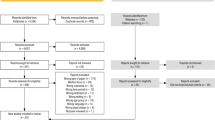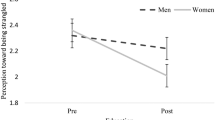Abstract
Prevalent early sexual initiation and unprotected sex involvement with various partners create dilemmas for adolescents and their parents. This article explores parents' involvement in their adolescents’ sexual and reproductive health, particularly with respect to terminating unintended pregnancies. This was done to gain an understanding of the dynamics of parental involvement in resolving anxieties concerning unintended pregnancy and the reasons for seeking induced abortions. The study used a mixed method approach, and 460 female students aged 13–20 years completed the self-administered questionnaire. Thirty-three parents who had an adolescent daughter in school and 31 female adolescents participated in eight different focus group discussion sessions, respectively. A quarter of the respondents had been pregnant at least once. All the females who had ever become pregnant had tried to terminate the pregnancy. Few (9 %) had used contraception at their last sexual intercourse. Twenty nine percent of the respondents had discussed sexual matters with their parents and 82 % preferred discussing such matters with their mothers. In the qualitative findings, some of the parents reported not having been involved in or supportive of terminating their daughter's pregnancy, but confirmed that some mothers had reasons to support induced abortions. Major reasons for mothers' involvement in their daughters' induced abortions were to avoid the social stigma, disruption of schooling and financial stress associated with unintended pregnancy. Resolving conflicting parental interests and values concerning adolescent sexuality and induced abortions is essential for promoting adolescent sexual health in Nigeria.
Similar content being viewed by others
References
Agunbiade, O. M. (2012). Dating practices and patterns of disclosure among in-school adolescents in Oyo State, Nigeria. Africa Development, 37(3), 19–39.
Agunbiade, O. M., & Udenkor, V. U. (2012). Adolescent mothers’ subjective well-being and mothering challenges in a Yoruba Community, Southwest Nigeria. Social Work in Health Care, 51(6), 552–567.
Crichton, J., Ibisomi, L., & Gyimah, S. O. (2012). Mother–daughter communication about sexual maturation, abstinence and unintended pregnancy: Experiences from an informal settlement in Nairobi, Kenya. Journal of Adolescence, 35(1), 21–30.
Doyle, A. M., Mavedzenge, S. N., Plummer, M. L., & Ross, D. A. (2012). The sexual behaviour of adolescents in sub-Saharan Africa: Patterns and trends from national surveys. Tropical Medicine & International Health, 17(7), 796–807.
Fatusi, A. O., & Blum, R. W. (2008). Predictors of early sexual initiation among a nationally representative sample of Nigerian adolescents. BMC Public Health, 8(1), 136.
Fehringer, J. A., Babalola, S., Kennedy, C. E., Kajula, L. J., Mbwambo, J. K., & Kerrigan, D. (2013). Community perspectives on parental influence on engagement in multiple concurrent sexual partnerships among youth in Tanzania: Implications for HIV prevention programming. AIDS Care, 25(2), 207–214.
Gevers, A., Jewkes, R., Mathews, C., & Flisher, A. (2012). ‘I think it’s about experiencing, like, life’: A qualitative exploration of contemporary adolescent intimate relationships in South Africa. Culture, Health & Sexuality, 14(10), 1125–1137.
Guttmacher Institute. (2012). Facts on abortion in Africa. New York: Guttmacher Institute [cited 2012 29th of March]. In brief. http://www.guttmacher.org/pubs/IB_AWW-Africa.pdf.
Ikamari, L., Izugbara, C., & Ochako, R. (2013). Prevalence and determinants of unintended pregnancy among women in Nairobi, Kenya. BMC Pregnancy and Childbirth, 13(1), 1–9.
Iliyasu, Z., Aliyu, M. H., Abubakar, I. S., & Galadanci, H. S. (2012). Sexual and reproductive health communication between mothers and their adolescent daughters in Northern Nigeria. Health Care for Women International, 33(2), 138–152.
Isiugo-Abanihe, U. C., Erinosho, O., Ushie, B., Aderinto, A., Sunmola, G., & Joseph, R. (2012). Age of sexual debut and patterns of sexual behaviour in two local government areas in Southern Nigeria. African Journal of Reproductive Health, 16(4), 81–94.
Izugbara, C. O. (2008). Home-based sexuality education Nigerian parents discussing sex with their children. Youth & Society, 39(4), 575–600.
Izugbara, C. O., Otsola, K. J., & Ezeh, A. C. (2009). Men, women, and abortion in central Kenya: A study of lay narratives. Medical Anthropology, 28(4), 397–425.
Kanter, M., Afifi, T., & Robbins, S. (2012). The impact of parents “Friending” their young adult child on facebook on perceptions of parental privacy invasions and parent-child relationship quality. Journal of Communication, 62(5), 900–917.
Kiragu, S., & Warrington, M. (2013). How we used moral imagination to address ethical and methodological complexities while conducting research with girls in school against the odds in Kenya. Qualitative Research, 13(2), 173–189.
Koster, W. (2010). Linking two opposites of pregnancy loss: Induced abortion and infertility in Yoruba society. Nigeria. Social Science & Medicine, 71(10), 1788–1795.
Kunnuji, M. O. (2013). Adequacy of parental provisions and safe sex practices among young people in Lagos metropolis. Sexuality & Culture, 17(4), 631–642.
Levandowski, B. A., Kalilani-Phiri, L., Kachale, F., Awah, P., Kangaude, G., & Mhango, C. (2012). Investigating social consequences of unwanted pregnancy and unsafe abortion in Malawi: The role of stigma. International Journal of Gynecology & Obstetrics, 118, S167–S171.
Makinde, T. (2004). Motherhood as a source of empowerment of women in Yoruba culture. Nordic Journal of African Studies, 13(2), 164–174.
Mchunu, G., Peltzer, K., Tutshana, B., & Seutlwadi, L. (2013). Adolescent pregnancy and associated factors in South African youth. African Health Sciences, 12(4), 426–434.
Miller, T., Mauthner, M., Birch, M., & Jessop, J. (Eds.). (2012). Ethics in qualitative research (2nd ed.). Thousand Oaks, CA: Sage.
Nigeria NPC. (2009). State population Abuja Nigeria: National Population Commission [cited 2013 March 20]. http://www.population.gov.ng/index.php/state-population.
Odimegwu, C., Solanke, L. B., & Adedokun, A. (2002). Parental characteristics and adolescent sexual behaviour in bida local government area of Niger State. Nigeria African Journal of Reproductive Health: Women’s Health and Action Research Centre (WHARC), 6(1), 95–106.
Okonkwo, A. D. (2013). Generational perspectives of unprotected sex and sustainable behavior change in Nigeria. SAGE Open, 3(1). doi:10.1177/2158244012472346.
Osadola, O. S. (2012). A historical analysis of ethnic conflict in Nigeria. Munich: GRIN Verlag.
Petronio, S. (2002). Boundaries of privacy: Dialectics of disclosure. Albany, NY: SUNY Press.
Petronio, S., & Durham, W. T. (2008). Communication privacy management theory: Significance for interpersonal communication. In L. A. Baxter & D. O. Braithwaite (Eds.), Engaging theories in interpersonal communication: Multiple perspectives (pp. 309–322). Thousand Oaks, CA: Sage.
Ryan, G. W., & Bernard, H. R. (2003). Techniques to identify themes. Field Methods, 15(1), 85–109.
Schwandt, H. M., Creanga, A. A., Adanu, R. M., Danso, K. A., Agbenyega, T., & Hindin, M. J. (2013). Pathways to unsafe abortion in Ghana: The role of male partners, women and health care providers. Contraception, 88(4), 509–517.
Shah, I. H., & Ahman, E. (2012). Unsafe abortion differentials in 2008 by age and developing country region: High burden among young women. Reproductive Health Matters, 20(39), 169–173.
Singh, S., Sedgh, G., & Hussain, R. (2010). Unintended pregnancy: Worldwide levels, trends, and outcomes. Studies in Family Planning, 41(4), 241–250.
Viner, R. M., Ozer, E. M., Denny, S., Marmot, M., Resnick, M., Fatusi, A., et al. (2012). Adolescence and the social determinants of health. The Lancet, 379(9826), 1641–1652.
Acknowledgments
Our special thanks go to the female adolescents and parents that shared their private worlds and opinions in improving the body of knowledge on adolescent sexual and reproductive health in Nigeria. We also appreciate the contributions of Dr. Caroline Kabiru, a Research Scientist at the African Population and Health Research Center to the early drafts of this paper. In the same vein, we received tremendous contributions from Dr. Zowie Davy, a Senior Lecturer in Community Care School of Health and Social Care at the University of Lincoln. Zowie under the publication-mentoring program provided by the International Association for the Study of Sexuality, Culture, and Sexuality (IASSCS) provided thought provoking comments and suggestions in improving the quality of this paper. Special thanks to the anonymous reviewers and the editorial team for providing quality feedbacks at different stages of the peer review process.
Author information
Authors and Affiliations
Corresponding author
Rights and permissions
About this article
Cite this article
Obiyan, M.O., Agunbiade, O.M. Paradox of Parental Involvement in Sexual Health and Induced Abortions Among In-school Female Adolescents in Southwest Nigeria. Sexuality & Culture 18, 847–869 (2014). https://doi.org/10.1007/s12119-014-9229-2
Published:
Issue Date:
DOI: https://doi.org/10.1007/s12119-014-9229-2




